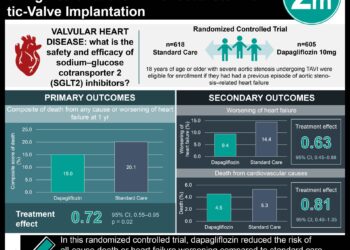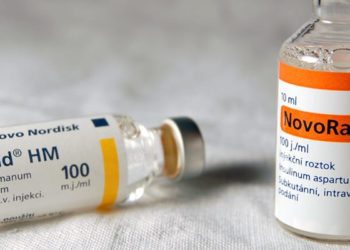Brain Natriuretic Peptide for predicting prognoses in patients with worsening renal function and acute heart failure
1. The reduction in Brain Natriuretic Peptide, in conjunction with worsening renal failure, can predict prognosis of patients with acute heart failure
Evidence Rating: 2 (Good)
For patients with acute heart failure (AHF), congestion is one of the primary reasons for hospital admission. A common decongestive treatment employs intravenous loop diuretics: However, this treatment can cause worsening renal function (WRF). In the literature, WRF is associated with poor prognosis for AHF patients when decongestive treatment is unsuccessful, whereas WRF is not associated with poor prognosis when decongestive treatment is successful. Therefore, distinguishing between successful and unsuccessful decongestive treatments is of prognostic importance. The authors of the current study hypothesized that changes in brain natriuretic peptide (BNP), a biomarker associated with greater congestion, would be an indicator of successful decongestive treatments, and therefore a predictor of prognosis in AHF patients with WRF. This retrospective cohort study examined 907 AHF patients from 20 Japanese hospitals. The analyzed factors include the presence of WRF, the reduction in BNP within 48 hours after admission, and the 1 year all-cause mortality. The patients were split into 4 groups: No WRF and low BNP reduction, No WRF and high BNP reduction, WRF and low BNP reduction, and WRF and high BNP reduction. The results showed that only the group with WRF and low BNP reduction had a significantly higher risk of mortality than the group with no WRF and high BNP reduction (Hazard Ratio of 3.34; 95% CI, 1.95-5.73; P < 0.001). Overall, the link between WRF and all-cause mortality is impacted by the amount of reduction in BNP levels. Based on study findings, it appears as though that BNP is a promising indicator for successful decongestive treatments, and is an important factor in predicting prognosis of AHF patients, when combined with WRF.
Click to read the study in PLosONE Medicine
Image: PD
©2020 2 Minute Medicine, Inc. All rights reserved. No works may be reproduced without expressed written consent from 2 Minute Medicine, Inc. Inquire about licensing here. No article should be construed as medical advice and is not intended as such by the authors or by 2 Minute Medicine, Inc.







